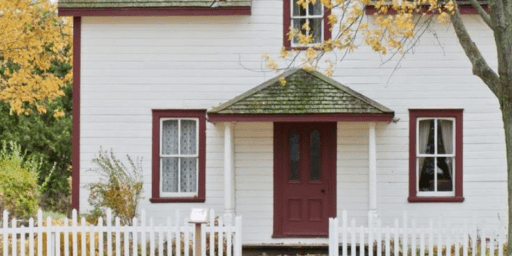Universal Life Insurance Explained
So, do we NEED universal life insurance? The main life insurance need most people have is income replacement. If you have anyone that is financially dependent on you (your family) and you want to know they will be okay if you die, you probably need to have some life insurance to replace that part of your income that they would need to be okay.
The need for income replacement goes away with time, though. When you retire (we call it being “financially free”), you can live fine without working. By then, your kids are usually adults and are no longer dependent on you. Your spouse will get your investments and much of your pension, so most people have little or no income replacement need once they retire.
Do You Really Need Life Insurance After Retiring?
This is where an insurance salesperson often tries to “create” a need. The main needs usually used are taxes on your estate and avoiding probate fees.
If your estate is mostly illiquid assets that your kids will want to keep, such as a cottage, then taxes on your estate are a problem. You give your kids the cottage, but your estate first needs to pay the capital gains tax, which can be a lot. If you have no investments, then they can only pay it by selling the cottage.
For most people, however, your main assets are your RRSP’s and your house (which your kids won’t keep). So your estate has lots of cash. If your estate is $1 million and there will be $200,000 tax when you die, all that means is your kids get $800,000 instead of $1 million. Is this worth paying life insurance premiums all your life for?
Paying probate fees take some effort to be made to seem important. They can be $10,000 (on a $1 million estate)! Wow! But when you look at the numbers, you can see through it. Probate fees are between .5% and 1.5% of the assets passed by the will. Since the insurance policy names a beneficiary, the death benefit passes outside the will, so you avoid the probate fees.
However, life insurance premiums for minimum universal life are usually at least 1% of the death benefit each year. Getting 10 or 20-year term is only about 1/3 the cost. So, if you live for 2 years, you have probably already wasted more in excess premiums than your estate will one day save in probate fees.
In short, most of our clients are in their 30’s, 40’s and 50’s. Do they need insurance for life? Who knows? They usually need income replacement insurance now and to build wealth for retirement. But there is nothing that tells us they will need life insurance after they are “financially independent”. This is probably true for at least 95% of the population.
If you don’t have a need for insurance for life, then universal life insurance is a waste of money. And if you do, only buy it if it is cheaper than term 100.
Is Investing in a Universal Life Insurance Policy a Good Idea?
This other question relates to the investments. Universal life allows you to pay extra into the policy to invest.
The “need” created is usually tax deferred growth, avoiding income tax on your estate (again) and avoiding probate fees (again). However, you can get the same tax deferred growth by buying corporate class mutual funds. And the other 2 are rarely worth paying the premiums all your life.
There are some major disadvantages of investing in a UL policy:
1. You are restricted to the investments within that policy, usually all from that one insurance company.
2. Most of the investments are “segregated funds”, which are insurance mutual funds that charge .5-1% higher MER’s each year.
3. There is a 2% premium tax on the extra premium you pay in to buy the investments.
In short, you can virtually always invest much better outside of your insurance policy.
Is Life Insurance a Good Idea?
So, if hardly anyone has a need for insurance for life and if investing outside of your insurance policy is almost always better, why are so many universal life policies sold? For most insurance salespeople, every problem looks like a nail.
Of course, universal life and whole life insurance products pay many times higher commissions than regular term. It is not easy to make good money selling life insurance if all you do is term (which is all most people need). This is why they need presentations on how to “create a need”.
In short, “Buy term and invest the difference” is wise advice for almost everyone. Get renewal and convertible term, so you can convert it to a term for life IF you one day actually need it.
I recommend reading these related articles if you want to learn more about life insurance and retiring safely:
I've Completed My Million Dollar Journey. Let Me Guide You Through Yours!
Sign up below to get a copy of our free eBook: Can I Retire Yet?











What is the difference between manulife’s performax gold and their estate bond?
Good for you Eric!
I think the main objection to Universal life is how the money is handled.
Higher management fees etc. The Whole life policies (a different animal) grows more steadily and never goes down.
The cash value always looks poor for the first 10 years. At year 15 plus it grow much better.
I had a father-in law who had an old Maritime Life policy which was bought out by Manulife (he was paid over $50,000) and kept the policy. If you have the right type of policy you are in fact a owner (like a share holder).
just want to share my experience. i bought manulife perform max in 1995. I was 28 years old. I paid about $60k over 6 years. when manulife went public (ipo), i got shares and sold it for more than $60k. my policy is really free. Now, the cash value is about $145k and growing by more than $10k a year. death benefit is like $750k. Not a bad investment. In my opinion, if you can afford it. Buy a little as early as possible. Yes, the cash value is not the greatest. However, it is an investment that you don’t have to be involved much. over long run, it returns is reasonable and tax free. Unlike term insurance, the death benefit goes up as time goes. If you live a long life, you can leave a large sum of money to your children or borrow money against it at late life.
Brian ,does policy holder receive the additional advantage of having premiums and other costs being paid within the policy with pre tax dollars generated within the policy during the years the policy remains active ? Thanks George
@Brian
Thanks for trying Brian but not really the kind of answer I was looking for. Was hoping Ed might have something to say on the topic as it’s pretty clear that permanent life is only an appropriate product for a very small portion of the population if really for anyone at all. If there is a group that would benefit in his mind, I would like to know who they might be and how the numbers break down so as to make the product beneficial too them.
@John,
Life insurance does two things provides a guaranteed amount for a family (at death) and in retirement, it allows one to have several options such as getting an annuity for some of the retirement funds (currently paying 8% or better in some cases, for life also guaranteed).
Where else can $100,000 produce $7,000 to $8,000 or better in retirement every year guaranteed as one example?
https://milliondollarjourney.com/investing-in-annuities.htm
Life insurance rates have gone up because of the low interest rates, also as one gets older as well.
The goal is to spend and enjoy you money in retirement, without having to worry about rates of return and pay less taxes.
cheers,
Brian
Hi Ed – at the end of the article, your quote goes,
‘In short, “Buy term and invest the difference” is wise advice for almost everyone.’
Could you elaborate on who the very few individuals are who can benefit from having a UL policy?
Happy New Year. Thanks. John.
FT,
Here is some new information your readers might want to review. From the Toronto Star
By James Daw | Mon Oct 25 2010
The cost today of insuring a life, no matter how long it may last, has remained roughly the same for many years.
Statistics Canada and similar agencies in other countries do not track the cost of life insurance in their national consumer price index. But insurers can point to certain permanent life insurance policies that are cheaper now than 16 years ago.
So coverage became more affordable for middle- and upper-income earners as wages rose. But, now, Canada’s leading seller of certain permanent policies is saying today’s prices cannot last.
Manulife Financial Corp. says it expects interest rates will remain low, and there are not enough savings to squeeze from gains in efficiency, from policyholders living longer or from policyholders letting their coverage lapse early.
My understanding is to also expect term rates to increase shortly as well.
regards,
Brian
Stephanie,
Insurance is a wants product. Do you want coverage and for how long. Over the years we change what we want as life changes. For example having a family means you think differently than someone who has no kids. In my case I have two twin boys. In Ed Remple’s case (my understanding) is he has no childern, which means he has no kids which gives him a different perspective on insurance in general. Again insurance is wants product.
If you read my article on annuities you could use the insurance as a way to guarantee a high after tax return in retirement. You don’t have to worry about returns. You have to look at cash flow. If money is tight maybe term is the only way.
I sell a lot of insurance and a lot of investments. When I started out 16 years ago with Investors Group (I am independent now) I was taught you could expect 12% returns every year …later 10% ….later 8%. Now advisors are talking about 5 to 6% in retirement! So the idea of buying term and investing the difference seems good on paper but does not always work. There is much more I can add but I will leave it here for now.
Hello, I must say you have me hooked to reading each comment….very interesting, thank you. I found your column while trying to figure out what my husband and I should buy as far as life, or and health crisis insurance. I have spoken with two different insurance people whom I know. One is my FP and one who has been in the Ins. business for approx 20 years. We are each lets say 44 years of age; I am expecting and due to have our first child in two weeks. We each do well but at the moment a little land poor :-), we have realestate assets,ie home, and land worth a fair bit. We have life insurance through my husbands work and I have a critical illness policy that costs me approx $70.00mth for $100,000. We just bought a piece of land and are wondering what type of insurances we should have to pay off approx $400,000 for mortgage and land if something were to happen to us over the next 20 years; with a young child to think about now. We would prefer not to sell anything if something happened to one of us. If something happened to both of us we would want our child to have a comfortable life. If we buy term 20 that takes care of the $400,000. but no more. We have the insurance through my husbands work but what happens when he retires; I know his work has flex dollars….sorry cannot remember all the details. Can someone tell us what would be the best product or products we should buy? thank you
@ Stephanie, I’m far from an insurance pro, but I’m a believer of insurance covering debt and needed cash flow from the passing of an income provider.